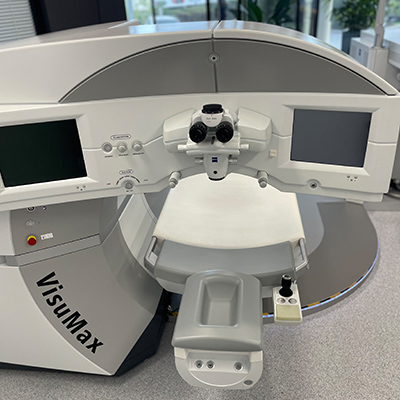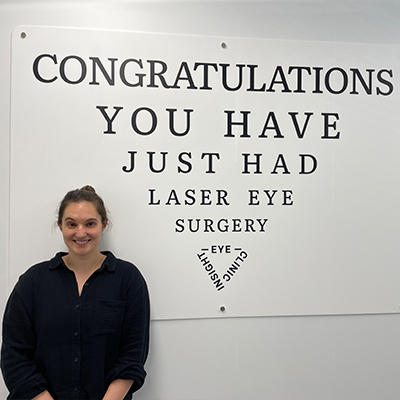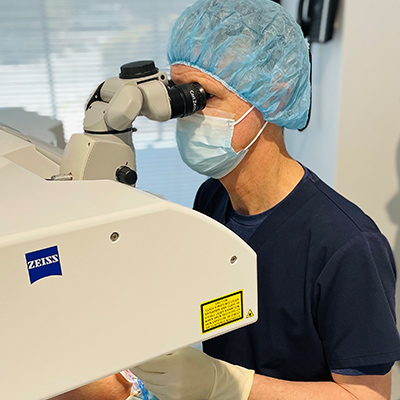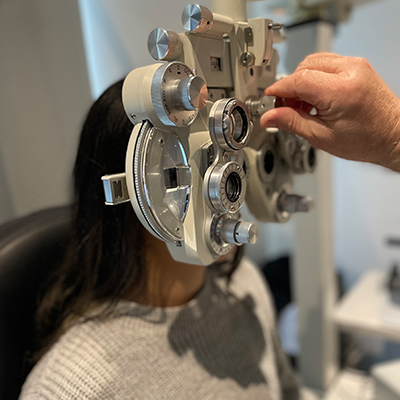Can I Go Blind from LASIK or SMILE Laser Eye Surgery?
Laser eye surgery is not without its risks. However, there are no reported cases of anyone going blind from having LASIK since it was approved in Australia in 1999. SMILE laser eye surgery was introduced to Australia in 2014 and the results have been nothing short of outstanding.
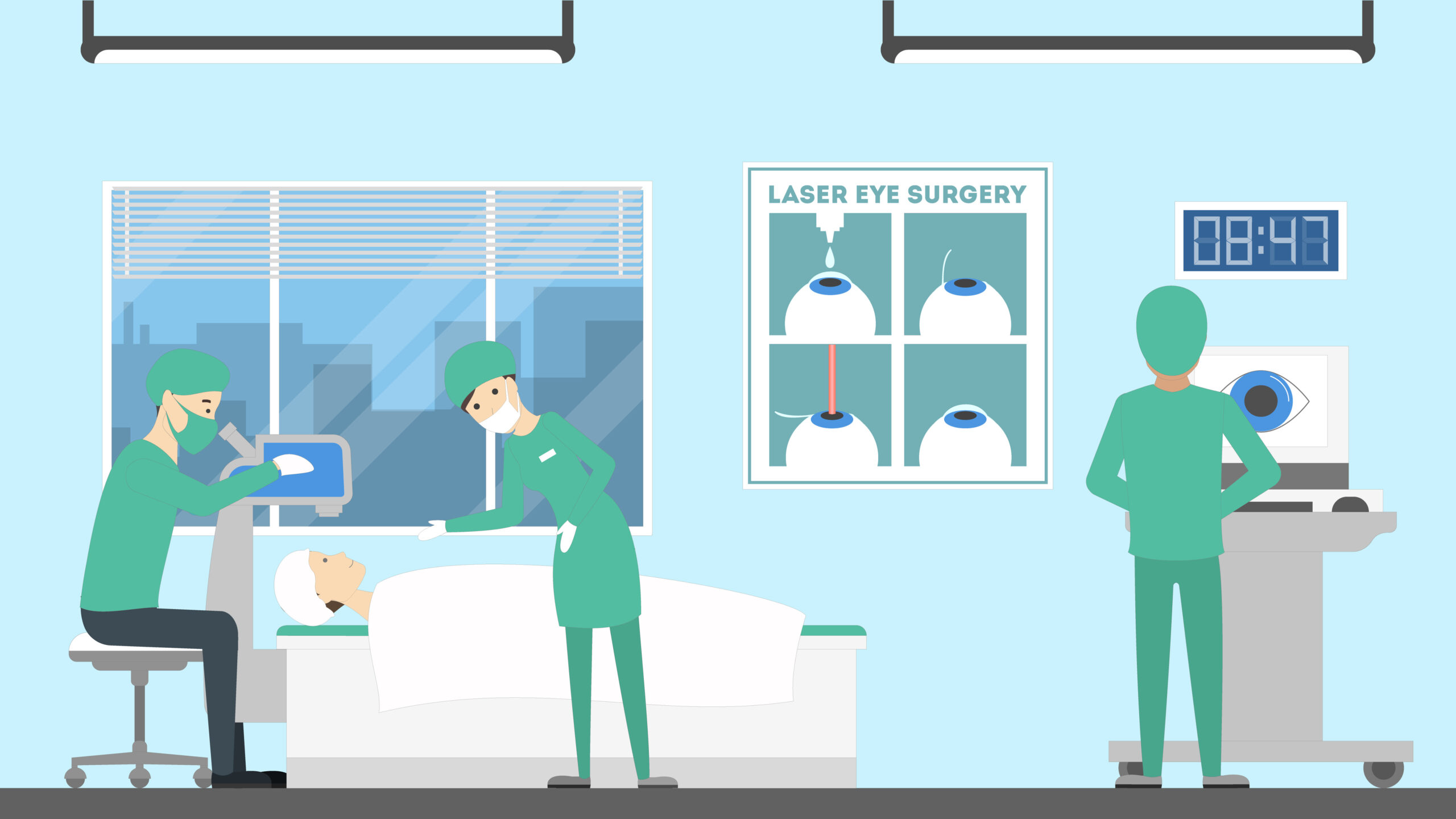
The development of refractive surgery
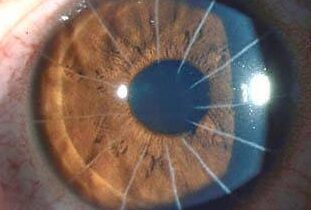
The incisions made in the corneal stroma during RK surgery
Prior to an excimer laser being used for laser eye surgery, procedures were done through creating small incisions on the surface of the cornea (stroma). This procedure is called Radial Keratotomy (RK) and was developed in 1974 by Svyatoslav Fyodorov, a Russian ophthalmologist. These incisions were designed to relax the cornea, causing a flatter surface of the eye which relieved near-sightedness.
This procedure and the findings from it, led to the development of PRK (photo-refractive keratectomy) which later lead to the development of LASIK (laser assisted in-situ keratomileusis).
The most recent approved development (2023) of laser eye surgery is SMILE (small incision lenticule extraction) which is currently only available for patients with short-sight and / or astigmatism.
Prior methods of correcting refractive error have been recorded since the early 1930’s.
The risks that are present
Despite there being no recorded cases of anyone going blind from LASIK or SMILE laser eye surgery, patients should still be made aware of the potential risks involved. Every eye is unique, just like a fingerprint. For this reason, each patient should receive a tailored treatment to their specific prescription and eye axis. But that is not all… the corneal topography (the microscopic shape of the corneal tissue showing any steep/flat points/abnormalities) is also mapped to ensure no over or under correction occurs within certain areas of the cornea.

During a consultation with Dr Graham Furness, who is the Director and Chief Surgeon at Insight Eye Clinic, he will ensure that every single angle related to your suitability is covered. The pre-op consultation process is just as important as the surgery itself. If the surgeon is not aware of the complexities of someone’s eye or their vision/family history, you are at risk of a potential complication or off target results.
Diagnostic technology advancements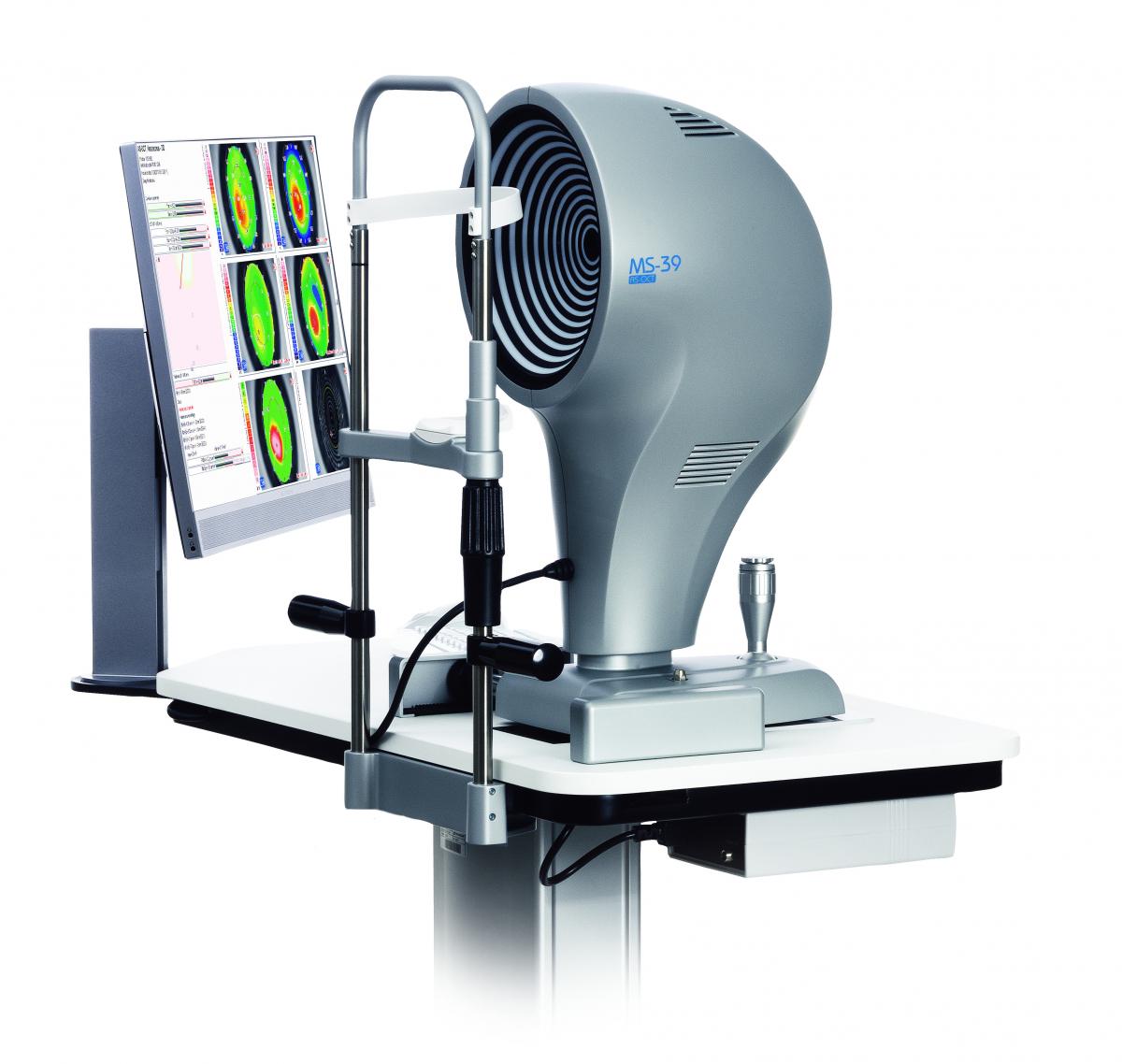
A fantastic surgeon and clinic will ensure that each patient has access to the best, most-tested and approved diagnostic devices. There are several pieces of equipment on the market that can provide accurate ophthalmic readings. It is important to feel confident with your choice of surgeon and clinic and that they have as much knowledge necessary to provide you the post-operative vision you deserve.
How to not go blind!
Make sure you give the clinic all the information that they are requesting. It might seem slightly intrusive at times but we promise, the reasoning for the information is all to serve your vision outcome. Follow the instructions provided in the lead up to your procedure, on the day of procedure and most importantly, during the post-op period. Health professionals rarely ask patients to do things that are not for the greater good of the patient. It is not up to the patient to decide what seems or doesn’t seem ‘necessary’.
Potential risks involved with LASIK / SMILE laser eye surgery
• Dry eyes – this can be managed with regular use of lubricating eye drops, avoiding smoky or dusty atmospheres and increased blinking. If dry eye is notable prior to surgery, a patient will be advised of the potential worsening following surgery or asked to postpone surgery until a dry eye treatment plan is in place
• Under or over correction – an enhancement laser procedure can be performed to achieve desired vision. In some cases, there is not enough corneal tissue for an enhancement and the surgeon will have advised the patient of this risk prior to performing surgery
• Epithelial ingrowth (when corneal epithelial cells grow under the LASIK flap) – anti-inflammatory drops and monitoring may be sufficient, a flap-lift and washout is sometimes necessary
All other side effects following LASIK and SMILE laser eye surgery are minor and not deemed a risk. However; the post-operative period following surgery will be discussed with each patient in order for them to understand what is and isn’t normal and when to come and see us.





